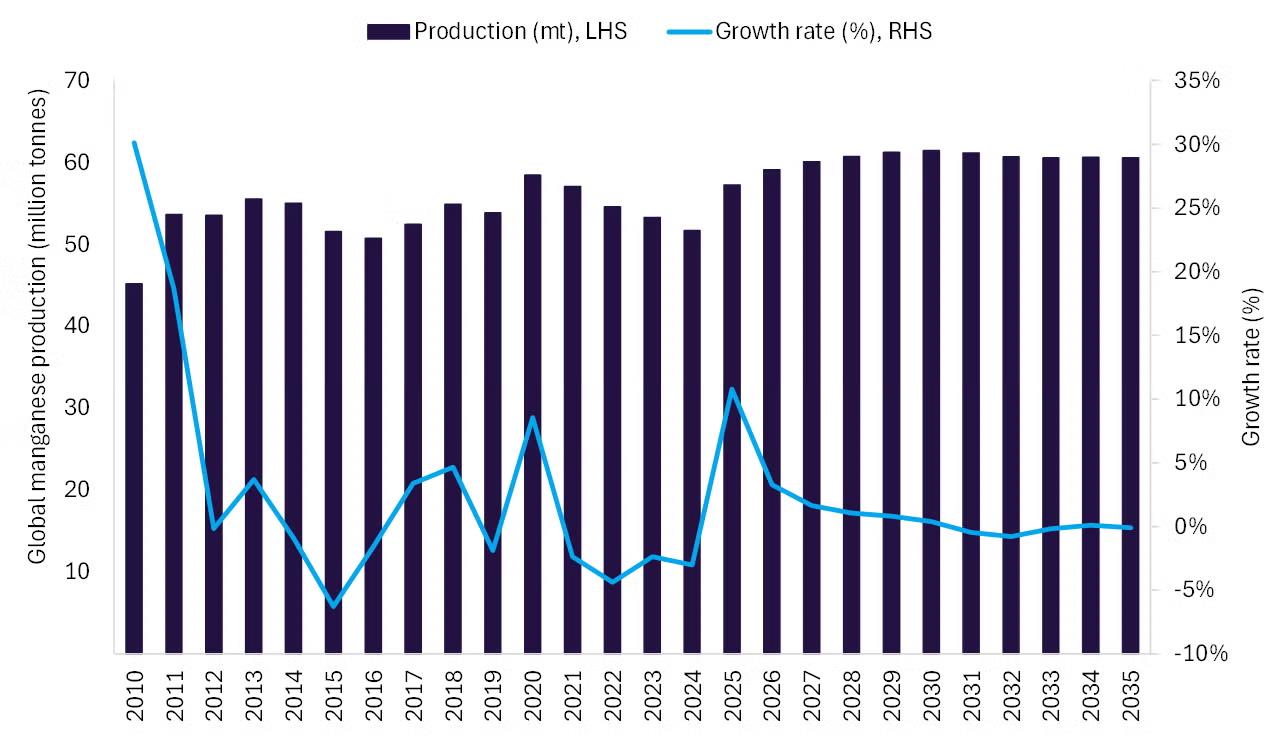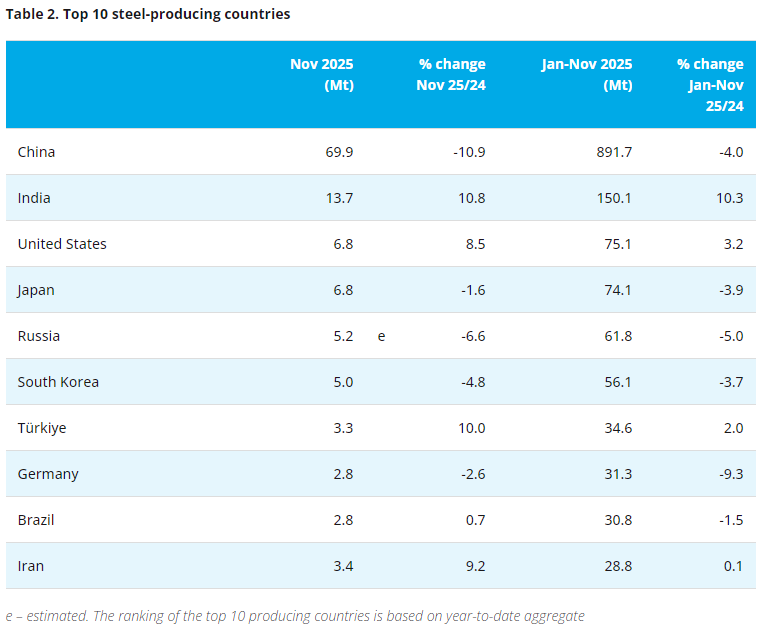[Ferro-Alloys.com] Stronger manganese demand predicted despite challenges
There remains a defiant expectation of sustained growth in manganese demand over the long term, driven by traditional steel markets and the emerging demand from electric vehicle (EV) batteries, highlights Australia-headquartered miner Jupiter Mines CEO Brad Rogers.
Despite the short-term market challenges, such as fluctuating raw material costs, overcapacity in the high-purity manganese sulphate market and potential supply chain disruptions, Jupiter Mines is positioned for long-term success. It is following a strategy that focuses on efficiency, growth and sound environmental, social and governance (ESG) credentials in the EV battery materials sector.
The company’s 49.9% ownership of the Tshipi Borwa manganese mine, in South Africa’s Northern Cape province, is a key asset, which has, thus far, delivered good returns for shareholders, including Jupiter’s, adds Rogers.
Tshipi Borwa has a remaining life in excess of 100 years, with Jupiter remaining confident in the mine’s future profitability.
To enhance the resilience of supply chains connected to the mine against potential disruptions, Jupiter endorses the implementation of flexible logistics solutions such as using alternative transportation routes and modes of transport as a way of adapting to changing circumstances and maintaining the flow of manganese ore.
In addition, the development of comprehensive risk management plans, which includes scenario planning, stress testing and contingency plans for alternative sourcing and transportation, is a necessary strategy aimed towards facilitating the efficient flow of goods, says Rogers.
From an energy perspective, he notes that State-owned power utility Eskom’s power systems have recently been relatively stable and reliable? – a “welcome development”.
Despite this, Rogers says Tshipi Borwa was built to operate independently of the national grid, as it is self-reliant, owing to diesel generators and the plan for a solar PV and battery storage plant.
These power assets drive improvements in costs, ESG and the mine’s overall carbon footprint, he explains.
From a logistics perspective, Rogers says Jupiter has been negatively impacted on by national rail challenges and has shifted its focus towards relying on transporting ore by road.
“Tshipi enjoys a good resource and operating base. [The mine is] able to road-haul profitably, although rail is more profitable and cost efficient. We have a number of paths to market, so if we encounter an issue at a particular port, Tshipi takes a relatively material amount of its production out through the Port of Lüderitz, in Namibia?,” he says.
Offtake Markets, Exxaro Entry
Rogers notes that manganese is mostly being used in the manufacturing of steel and this offtake will continue to be the dominant channel for the metal going forward.
However, there has been a slight reduction of late in China-bound manganese demand.
Nonetheless, on the African continent there will be new demand for steel in African countries that are currently less steel intensive as they start to ramp up industrialisation, Rogers explains.
In addition, renewed and rapid demand for manganese in steelmaking might result from the further development of EV batteries.
On the supply side, Rogers says several important and established manganese mines worldwide are coming to the end of their lives over the next ten years – a factor that will “drive market-share growth opportunities in opencast African mines in particular, with long-life mines, such as Tshipi, taking more of the share of demand”.
Meanwhile, following diversified energy group Exxaro Resources’ acquisition of manganese assets, including the Tshipi Borwa mine, from mining investment companies Ntsimbintle Holdings and OM Holdings, Jupiter Mines can expect operational and strategic benefits through the strengthened partnership, he adds.
Rogers “welcomes the presence of Exxaro” to the Tshipi Borwa project and highlights the ability, facilitated by the partnership, to leverage Exxaro’s operational expertise and resource base to enhance manganese production. This could potentially lead to increased market share and profitability, further solidifying the presence of Jupiter and Exxaro in the manganese market.
“We see a shared strategy and vision with Exxaro, with the common viewpoints . . . that manganese has a robust demand future,” he concludes.
- [Editor:tianyawei]



 Save
Save Print
Print Daily News
Daily News Research
Research Magazine
Magazine Company Database
Company Database Customized Database
Customized Database Conferences
Conferences Advertisement
Advertisement Trade
Trade









Tell Us What You Think